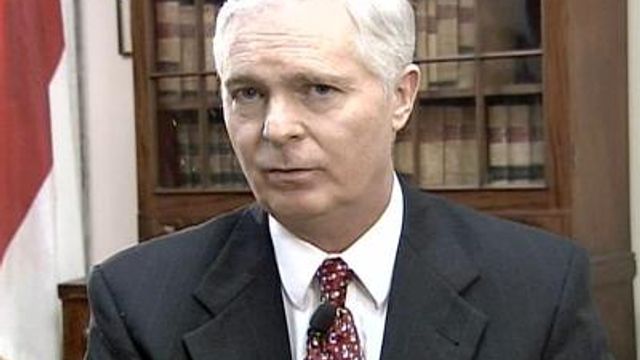Elections official: Easley hearing not a trial
Next week's State Board of Elections hearing into former Gov. Mike Easley's campaign finances may look like a trial, but officials insist the proceedings are only part of an investigation.
Posted — UpdatedEasley's travel on private planes and use of vehicles provided by auto dealers are expected to be addressed in the hearing, which will begin Monday and could last a week. The board is trying to determine if the value of the in-kind contributions violates state elections laws, which prohibit corporate donations and limit individual gifts to $4,000 per candidate in a single election cycle.
During the hearing, witnesses will be sworn in to testify, and some might exercise their constitutional right not to testify. The five-person board will serve as judge, jury and prosecutor, with members questioning witnesses, ruling on what evidence is admissible and determining whether any punishment should be doled out.
The board could take no action or could issue a reprimand or fine in the case. Its findings also could be turned over to the Wake County District Attorney's Office if board members suspect criminal activity.
Unlike a criminal trial, though, Easley and his attorneys won't have access to evidence the Board of Elections investigators have compiled or a list of potential witnesses, giving them little chance to prepare a defense.
Longtime defense attorney Joe Cheshire, who isn't involved in the Easley case, compares the hearing to an ambush. He said witnesses are easily painted as guilty in the public eye.
"I would not allow my client to participate in those particular hearings because I've never seen it benefit any person, innocent or guilty," Cheshire said. "There are no protections. There's no privacy."
Former state Agriculture Commissioner Meg Scott Phipps, House Speaker Jim Black and state Rep. Thomas Wright all were convicted of criminal offenses in recent years after undergoing an elections board hearing.
Gary Bartlett, the executive director of the elections board, said the hearings aren't designed to be trial courts. Rather, they are investigative in nature, he said.
"If you were to allow defense attorneys to be a part of the investigation, it would chill the investigation because there would not be a way to get to the facts," Bartlett said. "Our job is to find the truth and make it public."
• Credits
Copyright 2024 by Capitol Broadcasting Company. All rights reserved. This material may not be published, broadcast, rewritten or redistributed.






